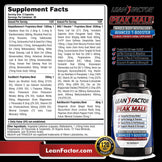HIV

Human Immunodeficiency Virus (HIV) in Western medicine is defined as a viral infection that targets the immune system, particularly the CD4 white blood cells. These cells' depletion increases susceptibility to opportunistic infections (Douek et al., 2009, Nature Reviews Immunology). It is generally transmitted via unprotected sex, sharing needles, or exposure to infected blood. The condition escalates to Acquired Immune Deficiency Syndrome (AIDS) when the CD4 cell count falls below 200 per cubic millimeter compared to a healthy range of 500-1600 cells (Palella et al., 1998, New England Journal of Medicine). In contrast, Traditional Chinese Medicine (TCM) approaches HIV through a focus on preserving "Vital Qi" and identifies early symptoms such as fever, itching, and fatigue as indicators of an invasion of heat. As the condition progresses, toxic heat disrupts multiple organ systems like the stomach, spleen, kidneys, and liver, manifesting in weight loss and poor appetite (Wang et al., 2016, Journal of Traditional Chinese Medical Sciences). Both frameworks offer diverse perspectives on etiology and management.

Categorieswhen you select any items page will be refresh and focus will be move out of the page
Health Concerns
Sun Dried White Mulberries - Organic
Organic Sun-dried White Mulberries have been enjoyed for centuries. They are native to Western and Central Asia and have been u...
Current price$13.99
Astragalus Root Powder - Organic
Astragalus root is an herbal supplement derived from the Astragalus membranaceus plant native to northern and eastern parts of ...
Current price$22.99
Astragalus Root Extract Powder
Astragalus root extract is derived from the Astragalus membranaceus plant, which is native to China. It is most revered and roo...
Current price$24.99
Peak Male - Ultimate Men's Health For...
PEAK MALE®: An Advanced, Natural T-Booster & Men's Health Formula Incorporating a potent blend of adaptogenic herbs, vitami...
Current price$69.99
Feel Better. Look Better. Be Better.
Get on the list for actionable Health & Nutrition advice every week.




























